How to cope with long haul flights
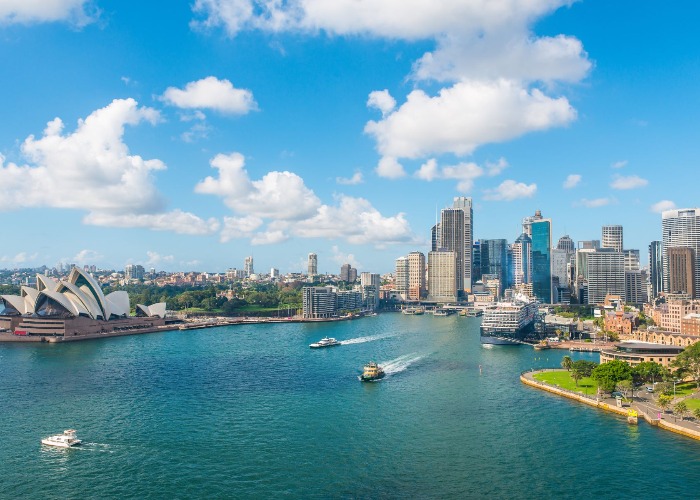
Now travel is well and truly back, we can enjoy seeing the world again. With plenty of far-flung places to experience, we have no choice but to fly long haul. Some people relish it, some struggle. If you're in the latter camp, fear not, we have some tips for coping with flying for six hours or longer.
Qantas recently announced that it will launch non-stop London to Sydney flights by 2025, which will mean 20 hours in the air. Although the airline is promising various wellbeing initiatives (including onboard wellness zones) designed to make the experience less stressful, there’s no denying that the thought of a 20-hour flight is somewhat daunting. Which is partly why it’s high time to take a look at these tips for coping with long haul flights.
The alcohol issue
Love a pre-flight tipple? It’s worth sticking to just one – a hangover from hell is the one type of excess baggage best avoided, after all. But there are other reasons, including the dry cabin air.
Alcohol is a diuretic, so not only will it mean more trips to the toilet (which are unlikely to go down well with the passengers you’re clambering over), but it will increase the risk of dehydration.
Low air pressure in the cabin is another reason to abstain – low air pressure means less oxygen enters our blood. “Add alcohol to the mix and you’ll not only feel the effects a lot sooner, but will be more prone to dizziness,” says nutritionist and wellness coach Sarah Carolides (sarahcarolides.com).
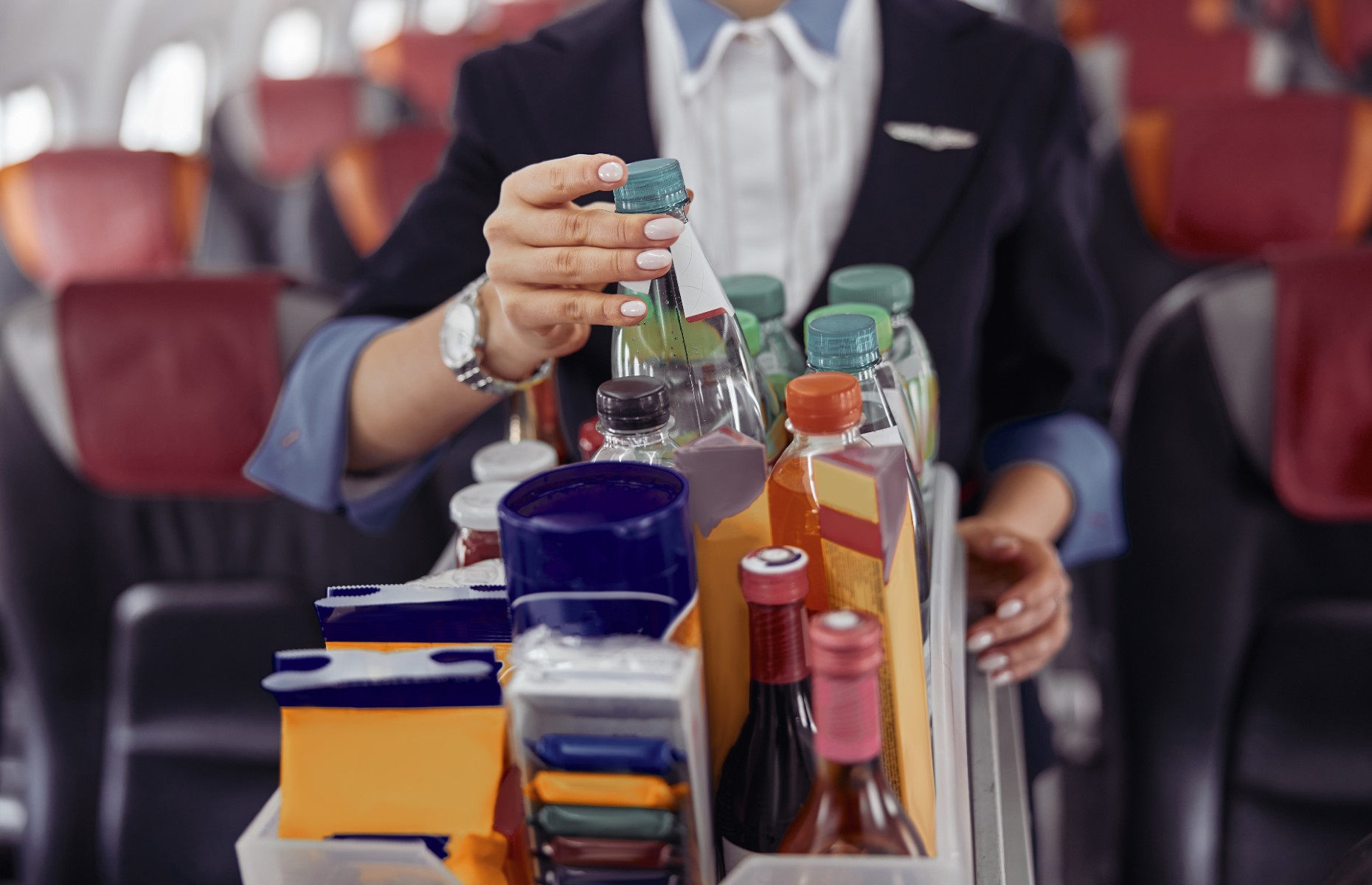 Ivan Dudka/Shutterstock
Ivan Dudka/Shutterstock
Hello hydration
Staying hydrated is essential, and we’re not just talking about making sure you drink enough water, but about keeping your skin hydrated too. “Cabin air is extremely low in both moisture and humidity,” says Sarah. “This is because at least half of it is pulled in from outside the plane, and at altitude there is very little moisture in the air. Keep your water levels topped up to avoid dry skin and headaches.”
Slash the salt intake
Being on holiday is a pretty good excuse for ditching the diet for a few days, but consider waiting until you’ve arrived at your destination until you really let loose, especially when it comes to indulging in foods with a higher salt content.
“Before a flight, avoid salty foods which could cause dehydration,” says Sarah. “It’s also a good idea to avoid sugary foods which can increase energy spikes and slumps during the flight.”
READ MORE: 7 secrets you need to know before booking with a travel agent
The perfect plane food
So what kind of foods are good ones to eat before a long flight? “Ideally, you should consume slow sugar-releasing meals so you don’t have that blood sugar crash early on in the flight,” says Sarah. “And avoid foods that make you feel gassy – the low-pressure cabin air, combined with a lack of movement, can make digestions sluggish.”
The ideal foods? “If you’re travelling in the morning, a balanced breakfast of porridge with some nuts, seeds and berries is a good option,” says Sarah. “If you’re travelling later in the day, consider a wholemeal bagel with eggs. Houmous, some grilled veg or salad will also do a great job of keeping your energy levels up without making you feel bloated.”
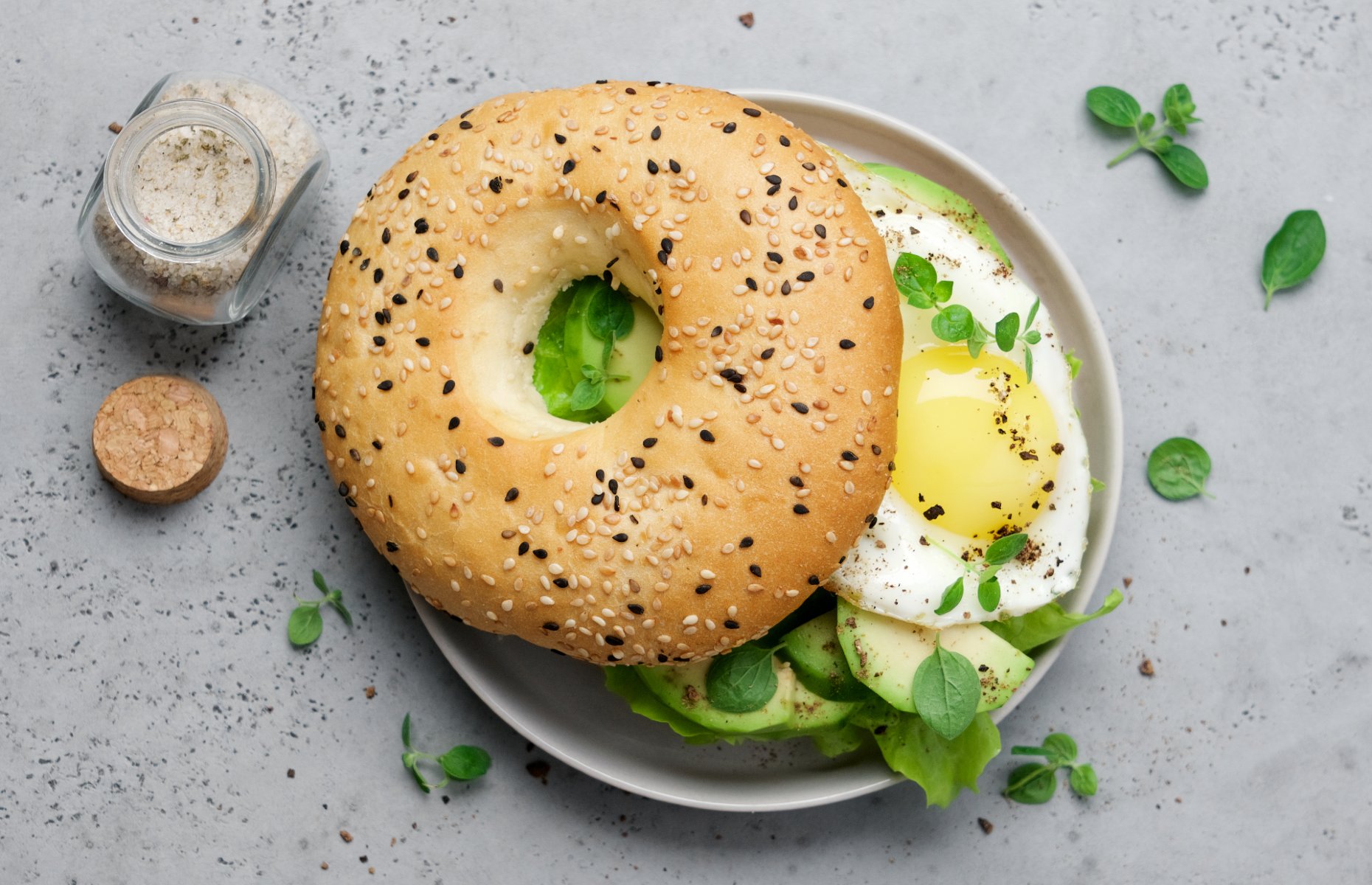 Anna Puzatykh/Shutterstock
Anna Puzatykh/Shutterstock
Bug busting
If you’ve got a long-haul flight coming up, consider upping your supplement intake in the weeks before. “Recycled cabin air can sometimes leave us more exposed to viruses,” says Sarah. “Keep your immune system topped up by incorporating plenty of vitamin C and D into your diet. Probiotics are a great option too.”
Onboard exercises
Although we’re not suggesting a conga down the cabin aisle, it’s essential that you keep mobile – sitting still for prolonged periods of time is never a good idea. This is partly because conditions associated with long flights can increase the risk of deep vein thrombosis (DVT), which can occur when blood clots form and block the flow of blood to key areas.
But there are other reasons too. When our body is idle in one position for too long, we’re more likely to experience stiffness in the spine, which is key to the smooth functioning of our body,” says Estalita Pinto, resident fitness expert at The Westin Maldives Miriandhoo Resort. Make sure you get up from your seat for a stroll around the cabin at least once every two hours.
READ MORE: 11 tried and tested ways to get cheap flights
Mid-air aerobics
Believe it or not, there are plenty of exercises you can do from the comfort of your own seat. “Simple exercises which can be done on a plane include neck flexes and extension (in yoga terminology, this is called the Bhadrasana),” says fitness expert Estalita.
“Then there are hip flexes and extensions – basically, bending forward from your hip joint while maintaining a flat back, which releases the stress all the way from the gluteus through to the hamstrings. I also recommend calf raises, to release the stress that would accumulate in the ankles.”
The pill problem
You don’t have to be a nervous flyer to hate the thought of a long flight, but that doesn’t mean reaching for a bottle of pills – whether it’s over-the-counter treatments, medication such as melatonin, or sleeping pills prescribed by medical professionals (who seem increasingly willing to dish out this type of drug to frequent flyers).
But chemically-induced snoozes are rarely good ones – you’ll find it harder to kick the jet-lag at your destination, and will often wake to an unpleasant brain fog. Additionally, by knocking yourself out you’re going to move even less, increasing the risk of not only general discomfort but of DVT.
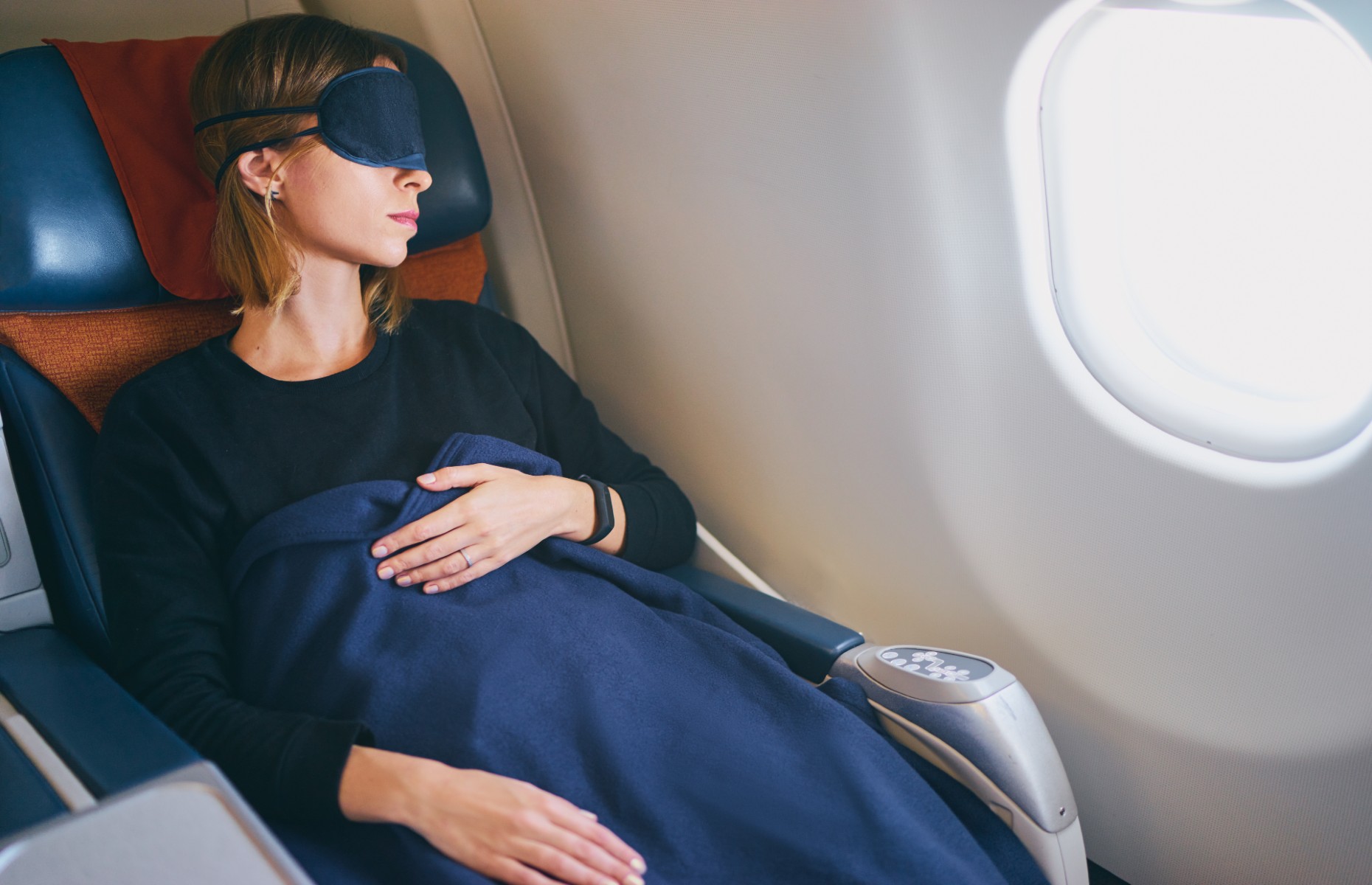 kudla/Shutterstock
kudla/Shutterstock
Embrace air travel
Finally, take the time to familiarise yourself with the noises and sensations associated with being in the air. If you’ve got a severe flying phobia, this is where fear of flying courses – such as the ones offered by easyJet – can help.
Wondering why this approach works? In a recent issue of Psychology Today, Tom Bunn, captain and flight phobia therapist, pointed out that anti-anxiety medication merely masks the issue by numbing the senses, preventing nervous flyers from getting used to the sensations which are part and parcel of flying.
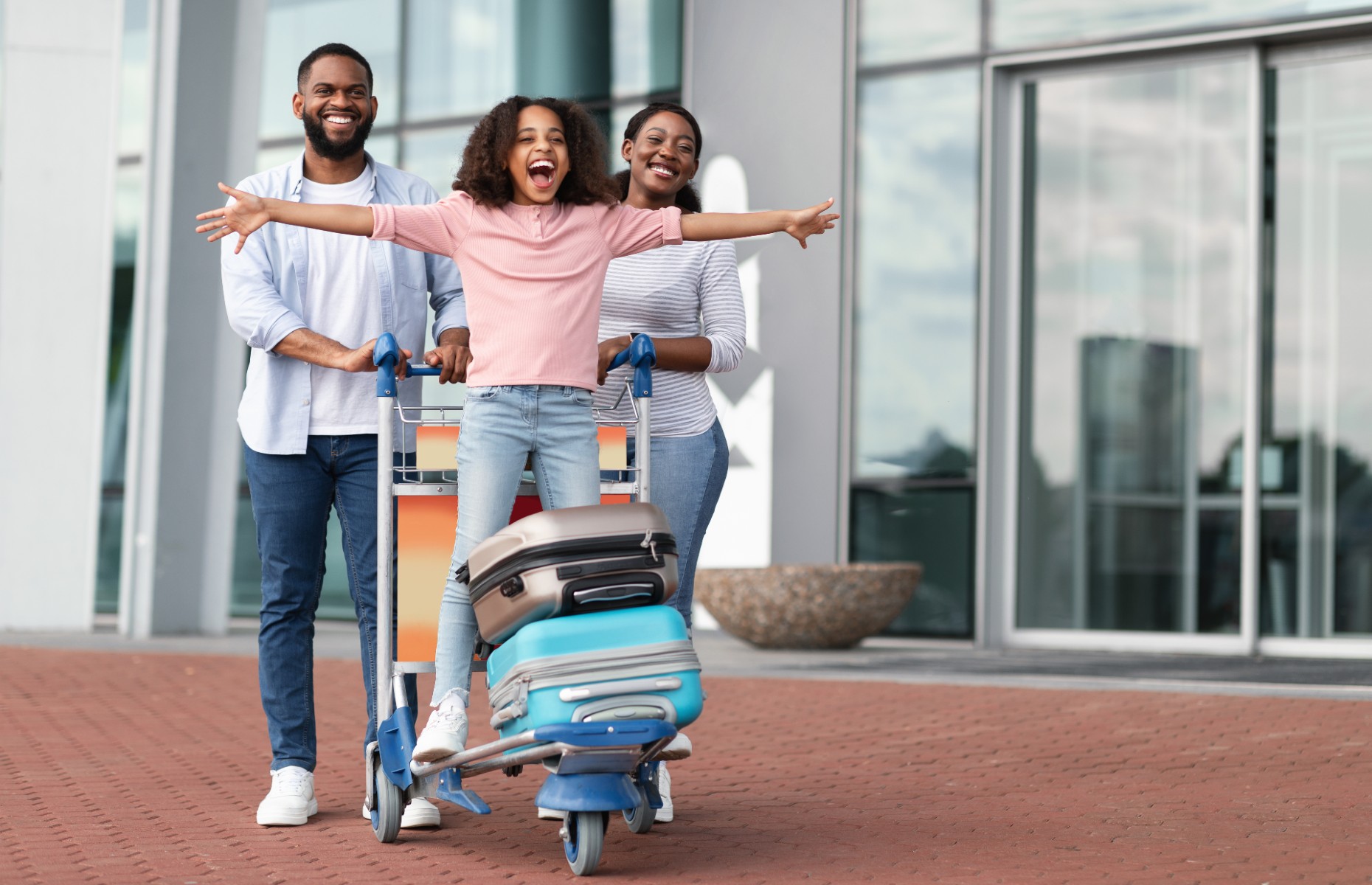 Prostock-studio/Shutterstock
Prostock-studio/Shutterstock
In one study, one group of nervous flyers was given anti-anxiety medication, and another was given a placebo. The nervous flyers who’d taken anti-anxiety medication were more relaxed psychologically, but their heart rates were higher. A week later, both groups took a flight, and neither was given medication. The passengers who’d taken the anti-anxiety medication (not the placebo) a week before experienced higher anxiety levels than the ones who’d taken the placebo, due to the artificial sense of security created by the medication the week before.
In summary? There are much better ways to deal with a fear of flying than with anti-anxiety medication, which doesn’t address the immediate problem.
READ MORE: 8 airline upgrades worth the money
Lead image: siwawut/Shutterstock
Comments
Be the first to comment
Do you want to comment on this article? You need to be signed in for this feature